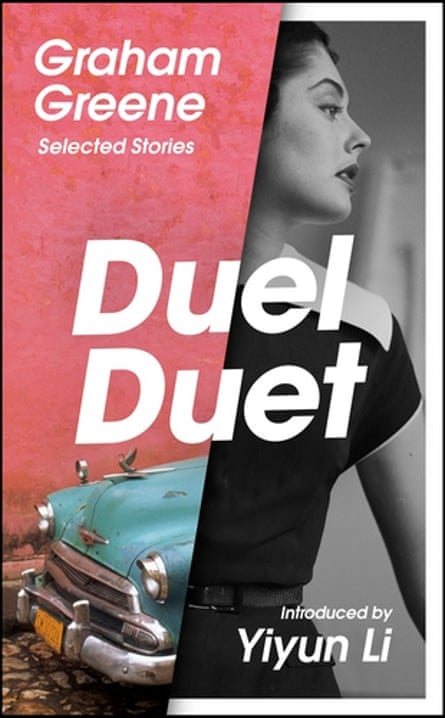A short ghost story by Graham Greene described by analysts as “an eerie gem” was published for the first time on Wednesday, a rare glimpse into the largely uncelebrated darker side of one of the giants of 20th-century literature.
Reading at Night appears in the 75th issue of Strand Magazine, a New York literary quarterly that has built a reputation for finding and publishing “lost” writings of well-known authors.
The landmark edition also makes widely available for the first time a previously little-known short story by renowned spy novelist Ian Fleming, author of the James Bond series of books.
Greene’s tale delves into a resurrection of “childhood fears and imagined horrors” experienced by a terrified solo male traveler as he reads supernatural stories in bed on a stormy night on the French Riviera.
The story was probably written in 1962, Greene biographer Jon Wise told Strand, during a relatively barren period of his career in which the English writer said he “didn’t have a novel in him”. It is a departure from the deeper and more complex style of writing expressed in Greene’s better-known psychological and political thrillers including The Third Man, Our Man in Havana, The Power and the Glory, and Brighton Rock.

“Greene wasn’t just a masterful novelist, he also excelled at the short story form, producing numerous classics,” said Andrew F Gulli, managing editor of Strand Magazine.
“As a huge admirer of Graham Greene, whom I’ve often considered one of the 10 greatest writers of the 20th century, this piece was a personal highlight. It’s especially meaningful given that he published a chilling ghost story, A Little Place Off the Edgware Road, in the original Strand Magazine back in 1939.
“While the story featured here may carry less overt menace, it still demonstrates Greene’s remarkable ability to hold a reader’s attention and subtly blur the line between entertainment and drama. Greene is a very serious author, and here there’s humor. It’s a playful yet chilling nod to the great supernatural stylists.”
In the story, the protagonist recalls how reading Dracula and horror stories by MR James traumatized him as a child, and from then “he had never enjoyed reading alone in bed anything which might prove ghostly or violent”.
So when he finds himself alone in the bedroom of a “strange” rented house on the Côte d’Azur, in the middle of a raging storm, and with only a paperback anthology of stories for company, his old fears come rushing back. In both the creepy story he reads, and the bedroom he is reading it in, there are mysterious scratching noises on the glass of the windows.
Gulli said the manuscript was found in archives at the Harry Ransom Center library at the University of Texas at Austin, and was subsequently evaluated and transcribed by Camilla Greene, steward of the Greene literary estate and granddaughter of the writer, who died in 1991.
“This eerie gem remained tucked away until now,” Gulli said.
“It’s a story you can identify with. Weird things can happen to you when you’re traveling alone, not weird like this story, but I’ve had odd knocks on the door in the middle of the night, or some unusual creaking, or you have a nightmare or something.
“It’s kind of like an everyday event and Graham Greene, with his great turn of phrase, his great style, turns it into something where it’s a what-if that can go a little too far, but just far enough to have a lot of interest to it.”
The story by Fleming, meanwhile, called The Shameful Dream, is also a separation from the author’s traditional fare. It builds suspense through a series of recollections of previous firings as a London periodical’s literary editor prepares for a potentially fateful meeting with the publication’s overbearing proprietor.
“While forever associated with the tuxedoed glamor of 007, Fleming was a talent who could transcend genre,” Gulli said.
“This piece has no martinis, no Aston Martins and no villains bent on world domination. It’s a quietly unsettling story about a washed-up journalist wrestling with the dread of an invitation to a sadistic media mogul’s mansion, a tale more literary than spy thriller, revealing Fleming’s lesser-known capacity for irony and sharp social observation.”
The story will also feature in Talk of the Devil, a collection of Fleming’s writings incorporating short-form fiction, travel essays, lectures, and correspondence with his friend and crime novelist Raymond Chandler, set to be published later this month.
In July, 22 of Greene’s short stories will feature in another new collection, called Duel Duet, published by Penguin.










